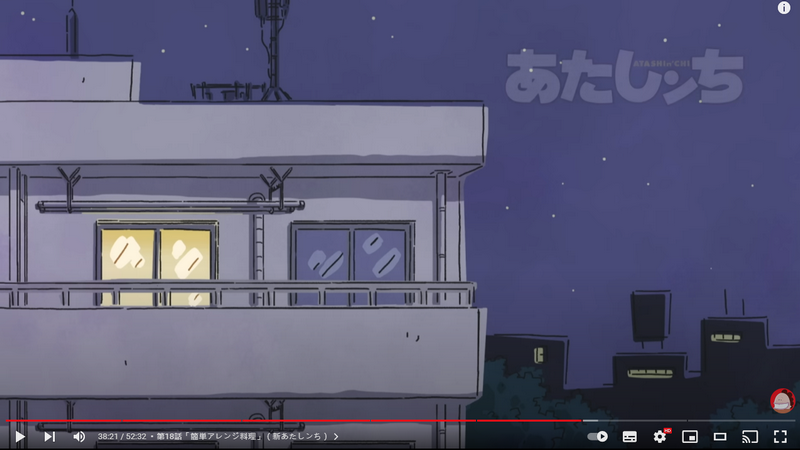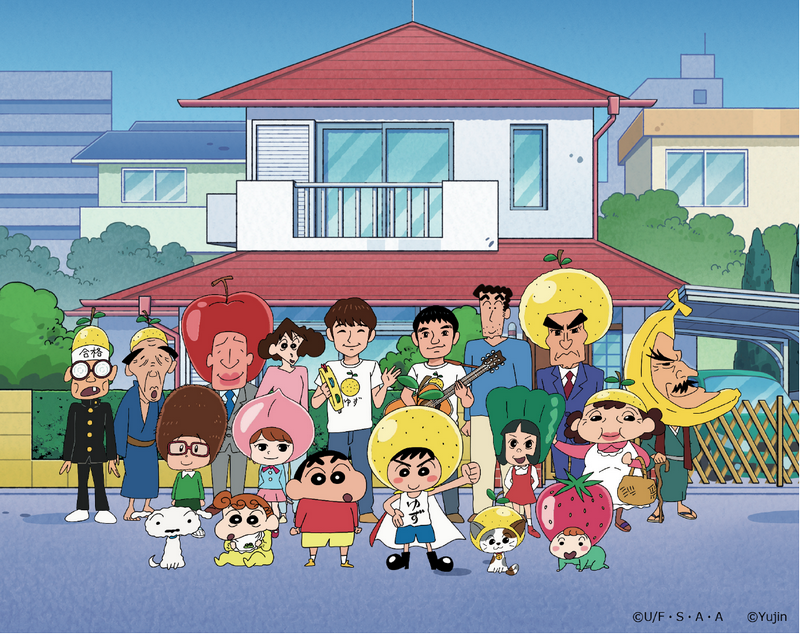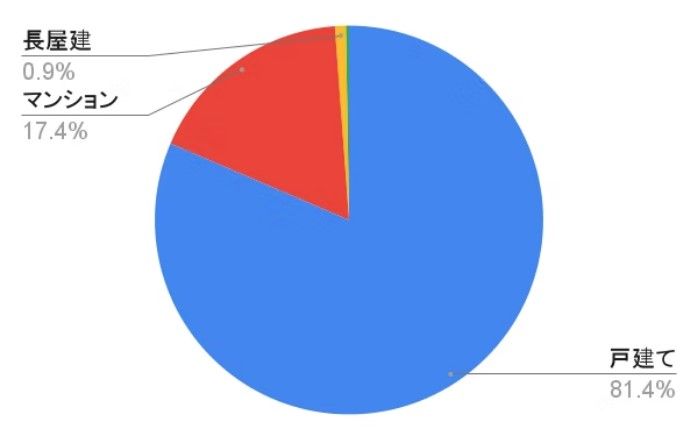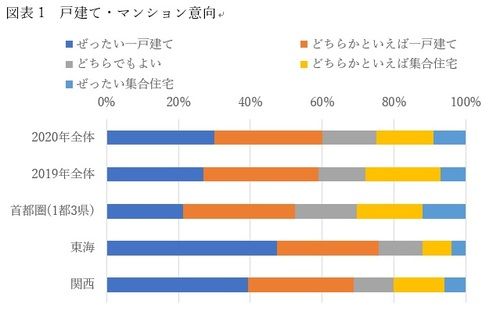
扎根日本的閒者,披露日本的不同面向,深入認識更真實的日本。 ( ^_^)/~~~ My blog https://motonojp.com/
The reason why the Japanese love one-family building
The housing type in Japan, whether it is self-owned or rented, can be broadly divided into two categories, collective housing and single-family housing . As the name implies, multiple families live in the same building as a condominium; only one family in a building is a single-family dwelling. Taking the more common animation works as an example, "Our Family" (Japanese: あたしンち), Hua Ma and the others live in a condominium; "Crayon Shinchan" (Japanese: クレヨンしんちゃん) a family lives in a single-family house.


The representative of the collective housing in Japanese is 【アパート(apartment)】【マンション(mansion)】, which means 【apartment】【building】, or the better-sounding 【Mansion】(Note: Although the Japanese language is behind The English source is identified, but the current Japanese usage is quite different from the original English meaning, please refer to the next paragraph for the specific distinction between the two). The single-family house is 【一樸建て(いっこだて or simply Hujian )】【一xuanjia (いっけんや)】, Taiwanese called 【Toutiancuo】or 【Villa】.
Japanese 【アパート(apartment)】【マンション(mansion)】in fact, there are no regulations to help them make a strict distinction, and most of them are decided by the builders or owners according to the main construction methods of building materials. 【アパート(apartment)】is mostly made of wood or light steel, generally 2 or 3 stories; 【マンション (mansion)】mostly made of reinforced concrete or called by the English abbreviation RC or SRC (Steel Reinforced Concrete), The floors are higher and are called [タワーマンション (tower)], which can reach more than 20 to 30 floors.
In Japan, which is so narrow and densely populated, what kind of housing do they mostly live in? The answer may be a little surprising.
According to statistics from the Statistics Bureau of the Ministry of Internal Affairs and Communications of Japan in 2018, single-family houses in Japan accounted for 81.4% , while collective houses only accounted for 17.4% . Do you think that Little Japan is so extravagant that most people live in villas? (laugh)

Even if the scope of statistics is limited to the most densely populated metropolitan areas (Tokyo, Chiba, Saitama, Kanagawa), the proportion of single-family houses is more than half, reaching 61.16%, and the aggregated housing is only 32.51%. Coupled with the endless epidemic in recent years, the conservative Japanese government has also begun to encourage companies to let employees work remotely as much as possible. As a result, housing prices in urban areas are much higher than in suburbs, and the more suburbs, the higher the proportion of single-family homes. People who can work remotely have begun to move out of the urban area. The population of Tokyo's 23 wards has shown a negative growth trend, and the proportion of single-family houses will continue to grow.
The reasons why most Japanese like single-family houses are described in three aspects: psychological level, living cost, and asset value.
psychological level
- Owning a house alone, families with children have less psychological burden, and don’t have to worry about arguing with neighbors
- During the epidemic, you don’t need to share elevators with others like a condominium house, so as to reduce the chance of contact
- You can keep furry children at will (because the apartment needs to be concerned about the quality of everyone's living, it is usually restricted or prohibited. If the apartment is open to raising pets, it will definitely be used as the focus of publicity)
living costs
- Usually have their own parking space, no additional parking fee
- There is no need to pay a fixed monthly management fee and repair fund like a collective housing
- The cost per unit area is relatively cheap, and a house is usually 2~3 floors, and the usable area is relatively larger (even so, compared to Taiwan, the area of Japanese houses is smaller, and 3-story buildings are generally only 100 square kilometers. Foot up and down (the actual usable area is about 33 ping). Although the area unit of "ping" was introduced to Taiwan from Japan, only commercial buildings in Japan now use "ping" as a unit)
Asset value
- Buildings and land on the ground are their own, and the value of the land is preserved. However, once a building exceeds a certain age, it has almost no asset value, but will become "negative equity" (usually torn down and rebuilt)
- If it needs to be rebuilt, it is much easier than the difficult-to-discuss collective housing

Although there are many advantages to building one house, the collective housing also has its advantages. Including myself, I prefer collective housing. Because I pay more attention to whether it is in a more convenient location, with perfect living functions, 24-hour garbage disposal, and security features such as anti-theft. These are usually the places where a house is relatively lacking. Of course, there must be one-family buildings in good and convenient locations, but one-family buildings in good locations are even more expensive, just like you can't have both.
In Japan, which of the same size condominium houses and single-family houses has higher house prices? Although the various conditions of each construction project are very different, it is difficult to compare. However, if it is also a new construction and the conditions are similar, a house may not necessarily be more expensive than an apartment. (laugh)
The above content is provided to friends who need this information, and there is also an article " Why do Japanese young people prefer to rent a house? " can also refer to. Of course, the examples given here are general rules, and there are many exceptions.
In other words, in recent years, I have often seen news of foreign investment entering and leaving Japan to buy houses, and I can't help but think of the soaring land prices in Japan during the bubble economy era.
2022/08/25 posted.
Original link to Japan behind-the-scenes observation
Like my work?
Don't forget to support or like, so I know you are with me..
Comment…